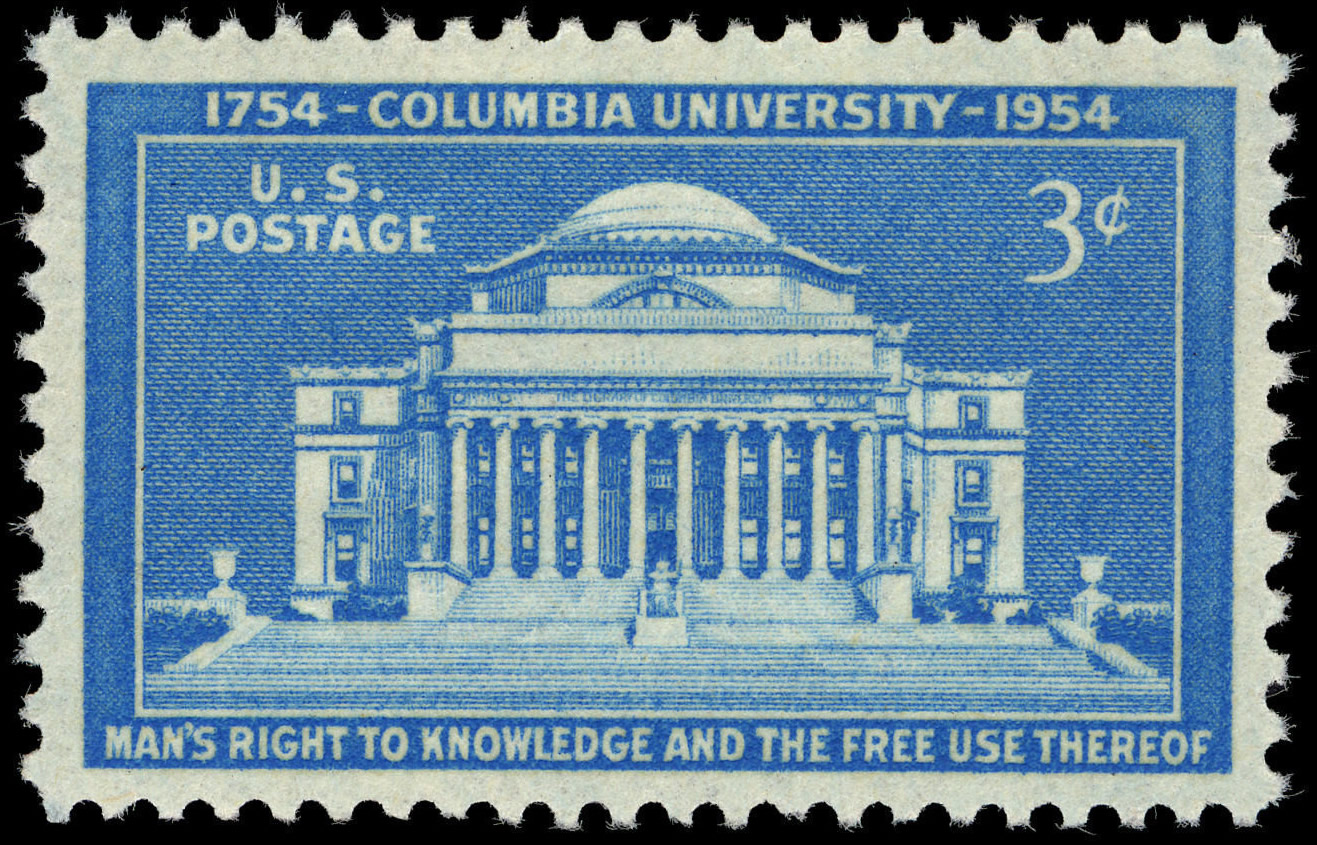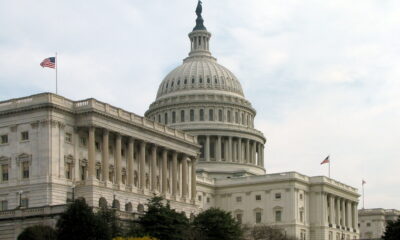Education
Colleges Who Prioritize Activism Surprised Students are Activists

A student activist makes fools of his college administration
In January 2024, Columbia student Khymani James announced on his social media that he wanted to kill Zionists. For this, he was under something less than an investigation – his campus support personnel reiterated this often – and he chalked up the whole interview, which he attended via video chat while in Greece and livestreamed for his friends back home, to bitter Jews ratting him out to administrators. James seemed to delight in humiliating the university officials who must have pulled the short straw when it came time to assign his case. Even still, they reinforced he wasn’t in trouble and that they were only trying to determine what kind of resources they could supply him.
Without prompting, James gleefully repeated his earlier contention that Zionists should die because they, like Hitler, inflict unbearable horrors upon the world. Within moments of declaring himself unrepentant for his deliberately violent speech, he argued that his own demographic profile – a multi-pronoun, queer African American – made him unsafe at Columbia. Meanwhile, he adroitly peacocked for his livestream followers, gingerly reapplying lip gloss amid their questions to signal to school officials that he would not take seriously any of their overtures.
A “camp counselor”
Months later, James became head camp counselor at Columbia’s Gaza Solidarity Encampment. It was only when investigative journalists uncovered the livestream that the university suspended him for his behavior. Despite insisting in the video that he was clear-eyed in his deranged January rant, James’s apology letter argues he was the victim of his own passion and a conservative media witch hunt that took his words out of context.
Columbia has no right to be surprised. James’s penchant for radical protest percolated long before he stepped foot in Morningside Heights.
In high school, he served as a non-voting member of the Boston School Committee, which manages the city’s public schools. Here, James proudly proclaimed he “hate[d] white people,” and when an X user asked Columbia if they condoned his statement, James responded that he “won’t be apologizing for anything.” His time on the council ended abruptly when he resigned due to grievances with “adultist rhetoric” and “emotional manipulation” that he said endangered his mental health. And all throughout his youth, he participated in public demonstrations, including protests affiliated with the anti-gun “March for Our Lives” movement, where impressionable teenagers, outfitted with adult organizing and institutional funding, made sweeping demands of policymakers.
Learning activism as a child
James’s childhood was punctuated by words like anti-imperialism, comrade and whatever adultism is. As he explained in a “Boston’s Black History Leaders of Tomorrow” local news segment, his future was to include “a lot of organizing” and “changing people’s minds to dismantle systems of oppression,” because that’s what he was “put on this Earth to do,” before, naturally, serving in Congress.
If Columbia’s admissions office were staffed with responsible, discerning grown-ups, they would have observed James’s childhood filled with incessant activism and seen a giant red flag. His reputation as someone who was, at the very least, disrespectful and disruptive was well-known. But instead of rightly concluding James was volatile, and thus a liability to their university, these administrators saw him as virtuous. Columbia, which admits less than 4 percent of its high-achieving applicant pool, somehow found Khymani James, in all his patently racist glory, worthy of a coveted spot at their school.
College admissions personnel preferentially admit activists
Columbia is not alone in this meritless method of selecting students. This is because elite institutions – schools that once admitted the kind of young adults who spent their childhoods excelling in academics, athletics, extracurriculars and philanthropy – apparently now more greatly prize a pubescent community organizer than a dutiful Eagle Scout.
Students have taken notice. A report from National Association for College Admissions Counseling found that even as early as 2018, admissions officers throughout the country saw a spike in activism-focused college essays. The increase was especially dramatic among the most select schools.
These mini-Guevaras are carefully formed at activism incubators, including social justice summer camps like YEA Camp, which brags that kids who participate in their organizing and training can overcome subpar academic performances to win admission to their dream schools. Institutions then “contextualize this in the same way that extracurricular activities or volunteer experiences are weighed,” Burcak Deniz Cakir, founder of college counseling firm EdMission Possible, told U.S. News and World Report in 2020.
This isn’t a natural phenomenon. Schools have reimagined the application process to glorify activism above achievement. In fact, universities now offer activism-oriented admissions essay prompts, like the University of Richmond, which asks 17-year-old applicants,
What is an action or policy you might propose to address an issue of social injustice in your school or local community, or on a national or global scale?
Another activist admitted by reason of his activism
Jack Petocz, a freshman who was expelled for his unlawful demonstration at Vanderbilt University in April, told the Associated Press that “protesting in high school was what helped him get into Vanderbilt and secure a merit scholarship for activists and organizers.” Petocz even dedicated his admissions essay to detailing his efforts to organize walkouts opposing Gov. Ron DeSantis’s policies on LGBTQ issues.
As with most problems in higher education, the blame lay squarely with the administrators who, with an unfailing devotion to their ideology and in competition with their peers at other institutions, create educational ecosystems that leave students bored, unchallenged and infantilized. Then, these bureaucrats fill the dorm rooms and classrooms with hordes of maladjusted children, only mere moments away from being “triggered” into tantrum. And should they build up enough courage to even confront the pests interrupting the delivery of education, administrators, like those who conducted James’s interview, do everything in their power to avoid actually holding them accountable, much less imposing any meaningful punishment on them.
The normals suffer the worst
The normal students – the ones who go to college to receive an education and prepare them for professional life after it – are the real victims. They simply want to go to class, study for finals, hang out with their friends and eat in the cafeteria. Instead, they’re forced to endure night-long pounding from drum circles and keffiyeh-clad mobs blocking their entry to the library, as though it made any difference at all to what is happening in the Middle East. And if they’re Jewish, they live in constant fear for their safety and well-being, relegated to refugee status on their own campuses in 21st century America.
Meanwhile, hapless college bureaucrats are held hostage by the activists they’ve spent their careers cultivating. The same extremists they’ve patiently coddled have repaid the favor by trashing their campuses and terrorizing their students, inviting scorn from lawmakers and disgust from the public. Donors and alumni, utterly embarrassed by the ordeal, are pressuring governing boards to overhaul university administration, while parents of high-performing students, Jewish or not, are steering their children from their campuses.
When the last tent has been swept away, the protest signs are in the dumpster and the drum circle has gone silent, once-great universities will be diminished and derided. And they will have no one to blame but themselves.
This article was originally published by RealClearPolicy and made available via RealClearWire.
Ellen Carmichael is the founder and president of The Lafayette Company, a Washington, D.C.-based political communications firm.
-

 Civilization4 days ago
Civilization4 days agoMaduro’s Capture: U.S. Foreign Policy in Latin America
-

 Guest Columns4 days ago
Guest Columns4 days agoA Bipartisan Fix for the Prescription Drug Market
-

 Guest Columns3 days ago
Guest Columns3 days agoWaste of the Day: Thousands of Earmarks in Illinois State Budget
-

 Education2 days ago
Education2 days agoIgnoring the Science: The Curious Case of Cell Phone Bans
-

 Civilization2 days ago
Civilization2 days agoA Better U.S. Strategy for Greenland Than Annexation
-

 Education3 days ago
Education3 days agoA Solid Core Enlivens Free Speech and Viewpoint Diversity
-

 Executive2 days ago
Executive2 days agoWaste of the Day: Utah University Trustees Don’t Know Their Job
-

 Civilization3 days ago
Civilization3 days agoEnd the Filibuster – Or Stop Pretending To Govern








